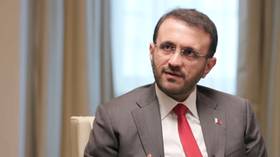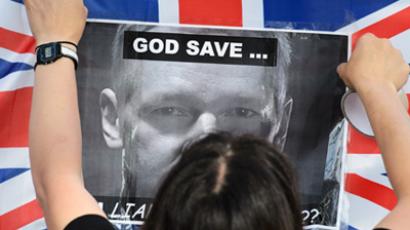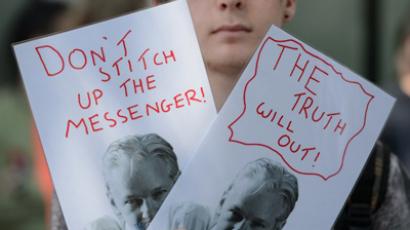Assange extradition looms as UK court rejects appeal to reopen case
The UK Supreme Court has denied WikiLeaks founder Julian Assange’s appeal to reopen his extradition case. It brings Assange one step closer to extradition to Sweden, where he is wanted over sexual assault and rape allegations.
On Thursday the Court has issued a five-point ruling dismissing an application by Assange’s defense to reopen the case. The reasons behind the decision have been anonymously agreed by seven judges, the document says.The Court has also announced that the required period for extradition shall not commence until the 14th day after Thursday. Once the two weeks are over, officials will have 10 days to transfer Assange to Sweden.The ruling leaves almost no hope for the WikiLeaks founder. Legal experts say he can still apply to the European Court of Human Rights to counter the decision of the British Court, but the chances are not good.There is one thing, however, that Assange’s defense team achieved with their application. The Court has changed the wording regarding Assange’s charges in Sweden from “stands charged” to “offences in respect of which his extradition is sought”.The correction is of particular importance for Assange, his supporters say, because the false statement was subsequently reported by the international press.The British Court had previously granted the Australian whistleblower’s legal team a period of 14 days to lodge an application to reopen the case after ruling against him in May. It was filed on Tuesday.Assange’s lawyer argued that the court had made the judgment based on EU legislation rather than UK law and, as such, Assange’s defense had not been given the opportunity to prepare adequately. Julian Assange has been fighting extradition to Sweden for the best part of two years in an ongoing marathon court battle.There are fears that his extradition to Sweden could result in him being handed over to US jurisdiction.Assange maintains the Swedish allegations are false and are founded on political motivations linked to the thousands of classified documents leaked by his WikiLeaks website. He does not deny that sex with two WikiLeaks volunteers in Sweden took place, but insists it was consensual. Meanwhile, Assange’s defense team has expressed concerns that, if extradited to Sweden and then subsequently to the US, the whistleblower will be tried in the same manner as Private Bradley Manning, who is currently facing a court martial on charges of handing over numerous documents to WikiLeaks.
Afshin Rattansi, an award-winning journalist, told RT it's a shame that the British Highest Court could not even get it right “as to whether Julian Assange has been charged,” emphasizing that Assange’s counsel won on that point. US attorney Kevin Zeese points out the same fact and explains that to be questioned, Assange’s physical presence in Sweden is not a must.“All Assange is wanted for is questioning, he’s not been charged. He could have done the questioning by Skype. There’s no need to go to Sweden to be questioned,” he told RT.Rattansi also asserts that the case is politically motivated, and draws attention to Hillary Clinton's trip to Sweden over the weekend, saying that there's a clear connection and “the United States could not have been more obvious.”
Watch RT's interview with Afshin Rattansi
Watch RT's interview with Kevin Zeese















